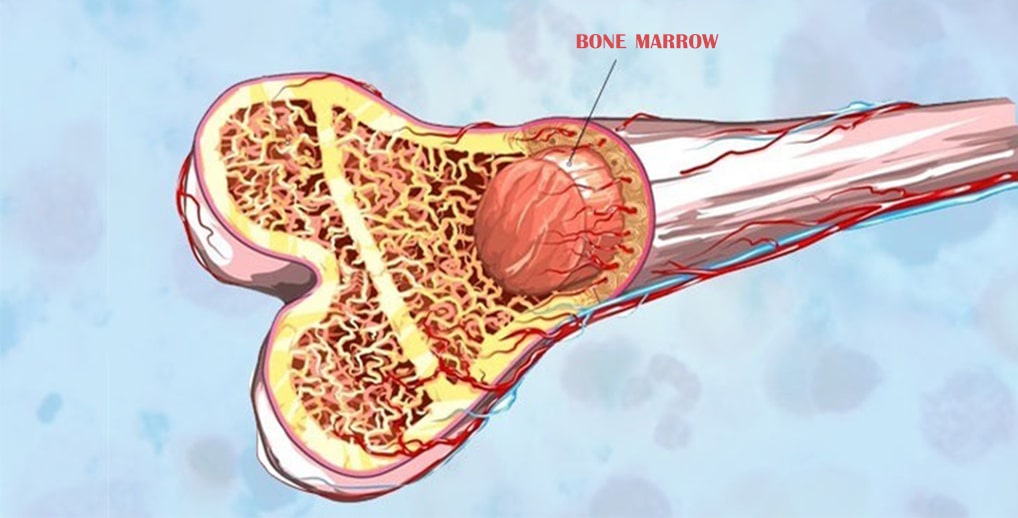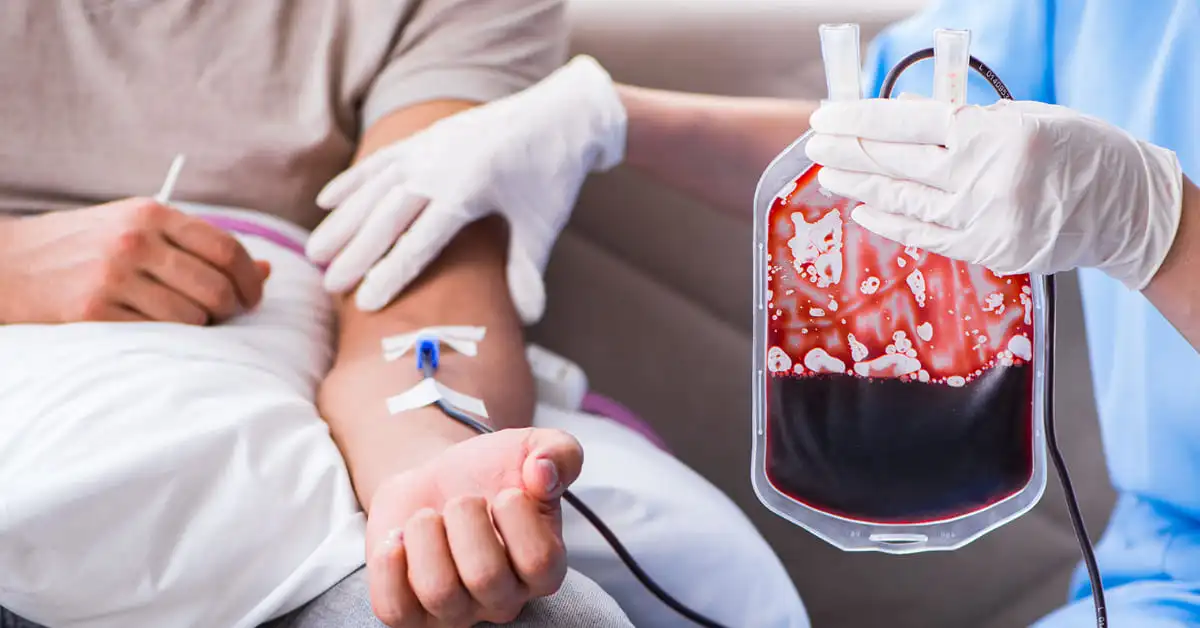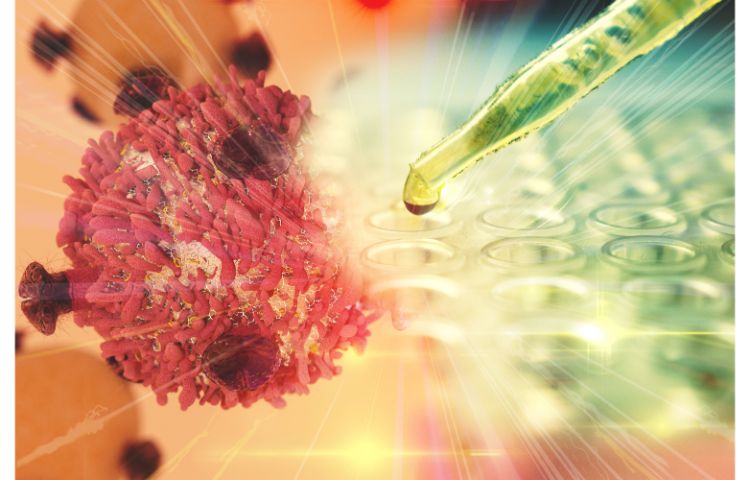Bone Marrow Transplant Allogenic
Turkey
-
Our Price USD 60932
-
Hospital Price USD 67702
-
You Save : USD 6770
Booking Amount: USD 6093. Pay Remaining 90% at the hospital.
Book NowAdditional Credit
Among the important extras we offer as part of the Additional Credit are the following:
-
Site Tourism For The Patient & Attendant
-
Airport Pick & Drop Service
-
Ambulance service at airport
-
Priority appointments with The Doctor
-
Cancel Easily Anytime with Full Refund
-
Room Upgradation
-
Free Online Doctor Consultation Valued at USD 20
-
Free hotel Stay for 5 to 7 days Accordingly
-
Welcome Kit at Arrival
-
Interpreter
-
Medical Visa Assistance
What is Included?
- Doctor consultation charges
- Lab tests and diagnostic charges
- Room charges inside hospital during the procedure
- Surgeon Fee
- Cost of implant
- Nursing charges
- Hospital surgery suite charges
- Anesthesia charges
- Routine medicines and routine consumables (bandages, dressings etc.)
- Food and Beverages inside hospital stay for patient and one attendant.
What is not Included?
- Extra Radiology Investigations
- Healthcare Professionals Charges of other consultations.
- Other Requested Services such as Laundry etc.
- Additional Pharmaceutical Products and Medicines After Discharge from Hospital.
- Management of Conditions Unrelated to Procedures or Pre-Existing.
- The cost of any additional implants will be in addition to the package cost.
Package Description
Bone Marrow Transplant Allogenic
A method in which healthy blood-forming cells are given to a patient to replace their own blood forming cells that have been damaged by radiation or heavy doses of chemotherapy.
Disease Overview:
Bone marrow cancer
Malignant plasma cells in bone marrow develop bone marrow cancer, also known as multiple myeloma, which spreads throughout the body.
Multiple myeloma is a malignancy that develops in the plasma cells of white blood cells. Antibodies that detect and destroy germs are produced by healthy plasma cells, which aid in the battle against infections.
Cancerous plasma cells grow in the bone marrow and drive out healthy blood cells in multiple myeloma. Instead of producing beneficial antibodies, cancer cells create aberrant proteins that might cause problems.
Multiple myeloma treatment isn't always required right away. Your doctor may prescribe diligent monitoring instead of early treatment if the multiple myeloma is slow developing and not causing signs and symptoms. There are a variety of therapeutic choices for patients with multiple myeloma who need help controlling the disease.
Disease Signs and Symptoms:
Multiple myeloma symptoms and signs vary, and there may be none at all early on in the disease.
When signs and symptoms do appear, they may include the following:
- Bone discomfort, particularly in the spine and chest
- Nausea
- Constipation
- Appetite loss.
- Confusion or mental fogginess
- Fatigue
- Infections that occur frequently
- Loss of weight
- Leg numbness or a feeling of weakness
- Thirst that is excessive
Disease Causes:
It is unknown what causes myeloma.
Myeloma is thought to start with a single aberrant plasma cell in your bone marrow, which is the soft, blood-producing tissue that fills the middle of most of your bones. The aberrant cell proliferates quickly.
Because cancer cells do not mature and subsequently die like regular cells, they collect and eventually outnumber healthy cell creation. Myeloma cells squeeze out healthy blood cells in the bone marrow, causing exhaustion and an inability to fight infections.
Myeloma cells, like healthy plasma cells, continue to try to make antibodies, but they generate aberrant antibodies that the body can't employ. Instead, aberrant antibodies (monoclonal proteins, or M proteins) accumulate in the body, causing issues such as kidney damage. Cancer cells can also cause bone deterioration, increasing the chance of breaking a bone.
A relationship with MGUS
Almost all cases of multiple myeloma begin as a relatively benign illness known as monoclonal gammopathy of unknown significance (MGUS).
MGUS, like multiple myeloma, is identified by the presence of M proteins in your blood, which are generated by abnormal plasma cells. However, with MGUS, M protein levels are reduced, and no harm to the body occurs.
Factors that are at risk
- Multiple myeloma can be caused by a number of factors, including:
- Getting older. Multiple myeloma is more common as you become older, with most people being diagnosed in their mid-60s.
- Sex of a man. Men are more prone than women to get the condition.
- The race of black people. Persons of colour are more likely than people of other races to acquire multiple myeloma.
- Multiple myeloma runs in the family. You have a higher chance of developing multiple myeloma if a sibling, sister, or parent has the disease.
- Personal experience with a monoclonal gammopathy of unknown relevance (MGUS). MGUS usually always precedes multiple myeloma, therefore having this condition doubles your risk.
Disease Diagnosis:
When your doctor finds multiple myeloma by mistake during a blood test for another ailment, it is called multiple myeloma. If your doctor believes you have multiple myeloma based on your signs and symptoms, it can be diagnosed.
The following tests and procedures are used to diagnose multiple myeloma:
Tests on the blood. Myeloma cells generate M proteins, which can be detected with a blood test. Beta-2-microglobulin, an aberrant protein generated by myeloma cells, may be discovered in your blood and provide your doctor with information regarding the aggressiveness of your myeloma.
Blood tests to check renal function, blood cell counts, calcium levels, and uric acid levels can also help your doctor figure out what's wrong with you.
Urine tests are performed. When M proteins, also known as Bence Jones proteins, are identified in urine, they are referred to as Bence Jones proteins.
Your bone marrow will be examined. A sample of bone marrow may be taken for laboratory testing by your doctor. A large needle is put into a bone to collect the sample (bone marrow aspiration and biopsy).
The sample is tested in the lab for myeloma cells. Specialized techniques, such as fluorescence in situ hybridization (FISH), can discover gene alterations in myeloma cells.
Imaging tests are performed. Bone issues linked with multiple myeloma may necessitate imaging testing. X-rays, MRIs, CT scans, and positron emission tomography are some of the tests that may be performed (PET).
Disease Treatment:
Treatment can help reduce pain, control illness complications, stabilize your health, and limit the progression of multiple myeloma if you're suffering symptoms.
It's possible that immediate therapy isn't required.
If you have multiple myeloma but no symptoms (also known as smouldering multiple myeloma), you may not require immediate treatment. Multiple myeloma that is slow developing and in its early stages may not require immediate therapy. Your doctor will, however, keep a close eye on your situation for indicators of illness progression. This might include blood and urine testing on a regular basis.
You and your doctor may decide to start treatment if you develop signs and symptoms or if your multiple myeloma shows evidence of progression.
Myeloma treatment options
The following are examples of standard treatment options:
Therapy that is specific to the patient. Targeted medication therapies concentrate on particular flaws seen in cancer cells. Targeted medication therapies can kill cancer cells by inhibiting these aberrations.
Immunotherapy. Immunotherapy is a type of cancer treatment that makes use of your immune system. Because cancer cells create proteins that assist them hide from cells of immune system, your body's disease-fighting immune system may not attack your cancer. Immunotherapy works by interfering with the immune system's natural processes.
Chemotherapy. Chemotherapy is a treatment that employs chemicals to destroy cancer cells. Fast-growing cells, such as myeloma cells, are killed by the medications. Before a bone marrow transplant, high dosages of chemotherapy medicines are utilized.
Corticosteroids. Corticosteroid drugs manage inflammation in the body by regulating the immune system. They're also good in killing myeloma cells.
Transplantation of bone marrow. A bone marrow transplant is a treatment that replaces damaged bone marrow with healthy bone marrow.
Blood-forming cells are taken from your blood before a bone marrow transplant. The damaged bone marrow is subsequently destroyed with large doses of chemotherapy. The blood forming cells are then injected into your body, where they go to your bones and begin the process of rebuilding your bone marrow.
Radiation therapy is a type of treatment that involves the use of To destroy cancer cells, radiation treatment employs high-powered energy beams from sources such as X-rays and protons. It can be used to diminish myeloma cells in a specific location fast, such as when a cluster of aberrant plasma cells forms a tumor (plasmacytoma) that causes discomfort or destroys a body part.
Information related to Treatment
Package Details
Days in Hospital
8 Days
Days in Hotel
*
28 Days
Room Type
Private
Similar Packages
Frequently Asked Questions
The patient's recovery may differ based on a number of variables. Nonetheless, following release, patients are expected to remain in the nation for roughly ninety days on average. It is crucial to perform all follow-up testing during this time to make sure the operation went well and the patient is cleared to return home.
In Turkey, bone marrow transplants are available in numerous cities, including the following: Istanbul, Fethiye, Antalya, and Ankara.
The patient may also be responsible for a few additional daily costs in addition to the expense of the bone marrow transplant. These fees cover daily meals and lodging away from the hospital. In Turkey, additional daily costs for each person are roughly USD 50.
In Turkey, bone marrow transplants are performed in a large number of hospitals. For instant reference, Turkey's top bone marrow transplant hospitals include some of the following: Baskent University Istanbul Hospital Anadolu Medical Center Medical Park Gaziosmanpasa Hospital Medicana Bahcelievler Medicana Bursa Hospital Hisar Intercontinental Hospital
The starting price for a bone marrow transplant in Turkey is roughly $56000. In Turkey, there are numerous hospitals approved by TEMOS, JCI, and SAS that provide bone marrow transplants.




